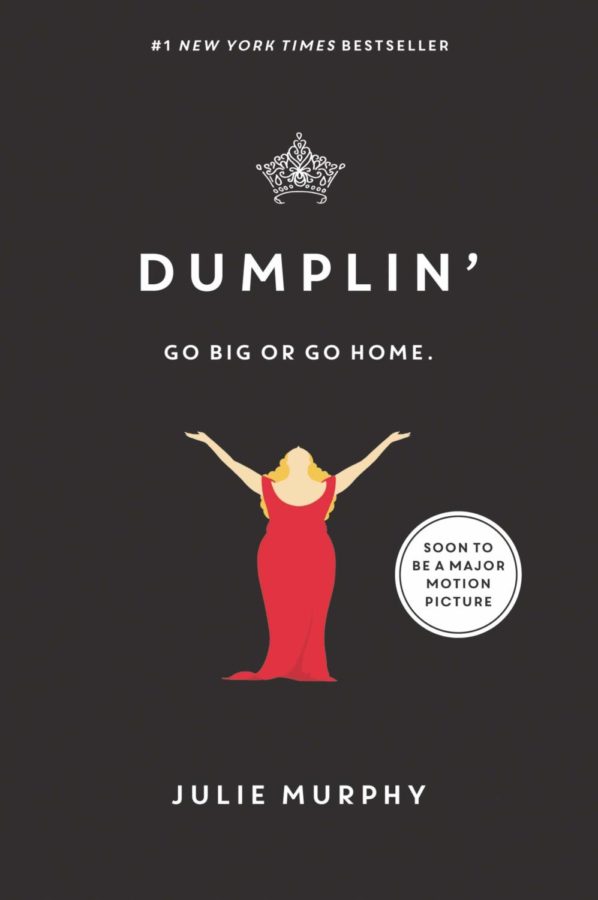‘Dumplin” book delights as a summer read
OK, I’m going to be honest with you all: I waited a long time to start reading my summer reading book. Like, a little too long. I had fallen into a reading slump where there was just nothing that interested me.
Thankfully my wonderful friend stepped in and saved my butt. I was at her house when she suddenly exclaimed, “Oh! The book!” And ran off. Moments later she delivered my saving grace: Dumplin’ by Julie Murphy. “It’s the book I was telling you about,” she said. I had honestly completely forgotten about it. “It’s so good, and I think you’ll love it.”
I admittedly wasn’t too sure — I was worried it would be just another cliché YA novel — but it was a week before school started. It’s not like I had any other options.
By the time I finished the book, though, it became one of my favorite books of all time, and thankfully managed to get me out my reading slump.
Dumplin’ is about a girl named Willowdean (which, unrelated to the quality of the book, I think is a really awesome sounding name) who is immensely lovable to the reader precisely because she seems like someone who could be real. She makes mistakes, and you feel bad for her, but you also know that she did mess up. And on top of her relatability, she’s an incredibly unique character — her mom is a previous winner of the local beauty pageant (Miss Teen Blue Bonnet), she has an unfathomably huge love for Dolly Parton and she’s, as she puts it, a “self-proclaimed fat girl.”
The first part of the book is her living through the start of the school year, and the second part of the book focuses around her entering the beauty pageant. Her mom runs the pageant every year, and Willowdean, trying to prove to herself and the other people in the town that she is just as likely to enter a pageant as any other girl, signs up, accompanied by three other unlikely candidates. Throughout the book, she’s having to juggle the insecurities about her body, her relationships with friends, the nearly consistent conflict with her mom and the massive crush she has on her coworker.
But Murphy did the amazing job of making us relate to Willowdean. Most teen girls will, at some point, dislike the way they look. I know that there have been times when I’ve looked at myself in the mirror and wished I looked differently. But seeing this teenage girl learn to be confident more in her own skin, love herself and actually live her life was fantastic to see. Willowdean’s story isn’t about her getting skinnier or about how finding a boy made her love herself. It’s about how she grew to be more empathetic to herself. According to DoSomething.org, “approximately 91 percent of women are unhappy with their bodies and resort to dieting to achieve their ideal body shape.” So, while most women will relate directly to Willowdean’s self-image issues, it’s still applicable to those who don’t. The book is written as if the reader is hearing Willowdean’s thoughts, so most readers will find themselves thinking about their own insecurities and comparing them to Willowdean’s.
Her confidence and desire to rise above the people judging her is a refreshing change of pace to the typical message that’s preached to teens about body image. When compared to things like Insatiable, the Netflix show that aired about three years after Dumplin’ came out, you can see how Dumplin’ is the type of media teenage girls need. Where Insatiable is about a young girl who becomes skinnier and decides to enter beauty pageants in an effort to get revenge on the people she feels wronged her, and Dumplin’ is something that builds them up for being who they are rather than tears them down for being who they are not.






